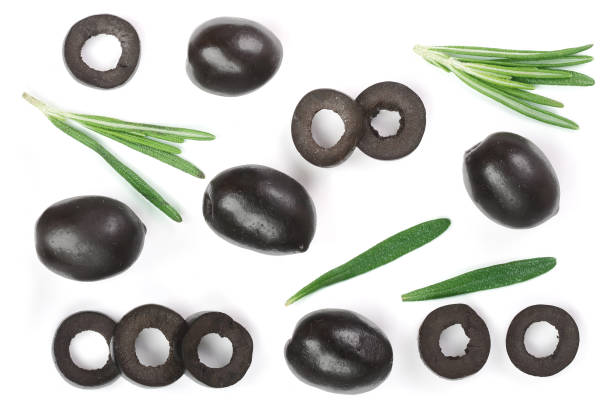So, First getting straight to the question which is Are black olive good for you?
And the answer is: Yes, Black olives are very good And healthy for us. Let’s try to understand why and how?
Black olives are a favorite among many people. They are different from other olives because of their dark purple-black color and slightly bitter taste. These unique characteristics make them more appealing to some than traditional green olives. Black olives also contain more healthy fats than green ones and are an excellent source of vitamins, minerals, and antioxidants.
Despite being commonly referred to as “black” olives, these fruits can come in varying hues that range from purplish-brown to almost black. This article will focus on how much black olive you should eat for optimal health, the benefits of black olives, what types there are, and nutrition facts.
Nutritional Facts of black olives
- Black olives are high in monounsaturated fatty acids and flavonoids.
- Black olives are an excellent source of fiber.
- vitamins (B, E, K, magnesium, and iron) are present.
- Great source of minerals like (potassium, manganese, selenium).
- Full of antioxidants.
- Black olives are a good source of protein and contain a range of vitamins and minerals.
Benefits of eating black olives
- Black olives are rich in health-promoting compounds and may reduce the risk of heart disease and cancer.
- Black olives contain monounsaturated fatty acids (MUFA) and flavonoids, which are beneficial compounds with anti-inflammatory properties and potential health benefits like reducing the risk of heart disease and cancer.
- Black olive are an excellent source of fiber, vitamins E, B, and K, magnesium, and iron.
- Black olives are a good source of protein and contain a range of vitamins and minerals. They provide dietary fiber and potassium, which is useful for controlling blood pressure and reducing the risk of stroke.
- They are also a source of magnesium, which can help to prevent blood clots, control blood pressure, and reduce the risk of type 2 diabetes.
How much black olive should you eat?
The recommended serving size of black olives is 10-12 olives (1 oz) per day. If you are trying to lose weight, you should keep the serving size of black olives to one or two. Before you go for the serving size, you need to keep in mind that not all black olives are the same. There are many different types of black olives available, and each type has its own nutritional profile.
Types of Black Olives
- California Black: California black olives are dark purple with a slightly sweet flavor. These olives are particularly high in anthocyanins, flavonoids that have been shown to have antibacterial, anti-inflammatory, and antioxidant properties.
- California Manzanilla: These black olives have a salty and pungent flavor. They are also a great source of flavonoids, which have similar antioxidant and anti-inflammatory properties.
- Greek: Greek olives are traditionally fermented in a brine solution. They have a very strong and salty taste. Greek olives are a good source of flavonoids and have a high monounsaturated fat content.
- Spanish: Spanish olives are fermented in a sour brine, which gives them a tangy, salty, and pungent taste. Spanish olives are packed with flavonoids and are a good source of monounsaturated fats.

How to select the best black olives?
- Density: The heavier, the better. Olives that are lightweight are either badly stored or have been treated with additives, which makes them lighter.
- Appearance: Avoid olives that look moldy or are discolored.
- Smell: Avoid olives that smell musty or stale. Fresh olives are aromatic with a slight smell of olive oil.
- Taste: Avoid olives that taste bitter, salty, or sour.
Conclusion
Black olives are a healthy and delicious snack. They are high in monounsaturated fats and flavonoids, have low calories, and are a good source of protein, vitamins, and minerals. Black olives provide a high level of antioxidants, which can protect the body from harmful effects of oxidation. Eating black olives is beneficial for your heart, blood pressure, and blood sugar levels. They are also a good source of fiber and can be enjoyed in many different ways.
FAQs
Is it OK to eat olives before bed?
Most people would probably say that eating olives before bed is not a good idea. After all, they are a bit salty and can give you heartburn. However, there are some benefits to eating olives before bed.
For one, olives are a good source of healthy fats. These fats can help you stay fuller longer, which can help you avoid late-night snacking. Additionally, the antioxidants in olives can help reduce inflammation, which can lead to a better night’s sleep.
Of course, if you are prone to heartburn, you may want to avoid eating olives before bed. But if you don’t have any issues with heartburn, they can be a healthy and satisfying snack before bed.
Are black olives good for high blood pressure?
According to some studies, black olives may help to lower blood pressure. One study found that olive oil extract, which is high in antioxidants, was able to lower blood pressure in people with hypertension.
The antioxidants in black olives can also help to protect your blood vessels from damage. This can reduce your risk of developing cardiovascular disease.
If you have high blood pressure, you should talk to your doctor about whether adding black olives to your diet is a good idea.
Is black olives good for weight loss?
Recent studies have shown that black olives can help with weight loss. The healthy fats in black olives help to promote satiety(food which gives us a feeling of ‘fullness’), which can help you eat less throughout the day. Additionally, the antioxidants in black olives help to boost metabolism and promote fat burning.
